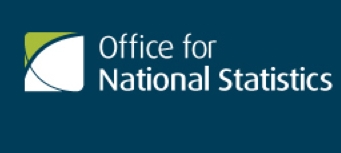Inflation rose by 0.5% in the year to March 2016, the Office for National Statistics has reported this morning.
This was compared with a 0.3% rise in the year to February, as measured by The Consumer Prices Index.
CPIH (not a National Statistic) grew 0.7% in the year to March 2016, up from 0.6% in February.
Maike Currie, investment director for personal investing at Fidelity International, said: “While today’s figures sees UK inflation move further into positive territory, we remain far away from the Bank of England’s 2% target. Today’s increase is unlikely to spur the Bank of England into considering raising interest rates on Thursday with widespread consensus that this week will see the 85th consecutive month that the bank keeps interest rates on hold at their emergency level of 0.50%. Markets are expected to take little encouragement from this decision.
“Meanwhile, the jury is still out on whether central banks’ experimentation with negative interest rates will enhance or constrain economic growth. There’s no disputing that in an environment of record low and sub-zero interest rates, it is increasingly challenging for savers and investors to find decent returns. Against this backdrop, investors are likely to continue to favour assets such as commercial property and equity income as safe havens and rare sources of yield.”
CPI statistician Phil Gooding said: "After an unprecedented period of CPI being close to zero, inflation has begun to rise again. Dearer clothing and higher air fares, influenced by the timing of Easter, are behind the rise in CPI, which is still low by historic standards.”
Ben Brettell, senior economist, Hargreaves Lansdown, said: "UK inflation jumped unexpectedly to 0.5% in March, from 0.3% in Februrary. Economists had expected a smaller uptick to 0.4%. Rises in air fares and clothing prices were the main contributors, and the downward pull exerted by transport costs continues to weaken.
"This was welcome news for the pound, which rebounded slightly having fallen to its lowest level in more than two years against a basket of global currencies last week.
"Talk of higher interest rates on the back of today’s data is premature, though. Although inflation rose by more than expected, the overall trend remains weak, and places little pressure on the MPC. Core inflation, which strips out volatile components like food and energy, rose to 1.5% in March, but this is still significantly below the Bank’s 2% CPI target. The Bank said in February it expected inflation to undershoot the target until 2018.
"Naturally policymakers will need to remain mindful of the risk that inflation overshoots at some point. However, the UK economy is battling a number of significant headwinds at present.
"Consumer spending, aided by low inflation, low unemployment and rising wages, has been the engine of economic growth lately. But recent surveys suggest consumers reined in their spending in March - perhaps the first sign of nerves ahead of June’s EU referendum.
"All in all, the economic picture remains highly uncertain and I expect no action from Threadneedle Street for some time yet."
The ONS reported: “The rate has increased gradually since October 2015 although is still relatively low in the historical context.
“Rises in air fares and clothing prices were the main contributors to the increase in the rate between February and March 2016.
“These upward pressures were partially offset by a fall in food prices and a smaller rise in petrol prices than a year ago.”

